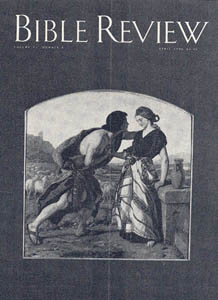
Ulterior Motive in Gospel of Thomas Article?
I write with fear and trembling since I’m merely a minister. But I strongly disagree with the renowned Helmut Koester and coscholar Stephen Patterson concerning the Gospel of Thomas (“The Gospel of Thomas—Does It Contain Authentic Sayings of Jesus?” BR 06:02).
I fully agree with their conclusion that the Gospel of Thomas contains several sayings that go back to the earliest Church, possibly even to the historical Jesus, but I believe the authors overextend themselves when they say that “the early Church was not unanimous in making the resurrection the fulcrum of Christian faith. For both Q and Thomas, Jesus’ significance lay in his words, and in his words alone.”
This sweeping conclusion is based merely on the fact that Q and Thomas are collections of sayings rather than narratives of Jesus’ ministry or passion. Does the one necessarily exclude the other? Source criticism has shown that the miracle stories in the Gospels once circulated as a separate collection. Are we to deduce from this that for some early Christians Jesus’ significance lay in his miracles only, at the expense of his resurrection?
The fact that Q and Thomas are collections of sayings only gives evidence that Jesus’ words were treasured by many early Christians for their own sake, but not that these same Christians disbelieved or saw no significance in Jesus’ resurrection. On the contrary, the fact that the Gospel of Thomas refers to Jesus as “the living One” seems to assume some son of belief in Jesus’ resurrection.
Already a library member? Log in here.
Institution user? Log in with your IP address.

